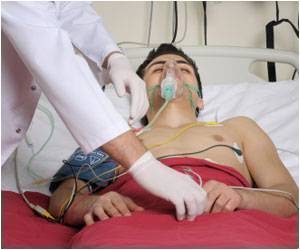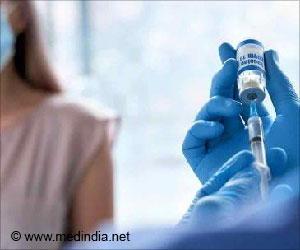.
“Previous reports have found that 17% of hospitalized COVID-19 patients experience blood clots”, says first author Maya Chilbert, PharmD, clinical assistant professor in the UB School of Pharmacy and Pharmaceutical Sciences.
A wide variety of practice exists when it comes to approaching blood clots in hospitalized patients with COVID-19, and there is little data to suggest improved outcomes using one strategy versus another.
Caution should be used in mechanically ventilated patients with COVID-19 when selecting a regimen to treat blood clots, and the decision to use full-dose blood thinners should be based on a compelling indication rather than lab markers alone.
The study analyzed the outcome of blood clot treatments and the rate of bleeding events for more than 150 patients with COVID-19 who received either of two blood thinner regimens: a full-dose based on patient levels of D-dimer (a protein present in the blood after a blood clot dissolves), and the other a smaller but higher-than-standard dosage.
The average patient age was 58, and all experienced elevated levels of D-dimer, fibrinogen (a protein that helps the body form blood clots), and prothrombin time (a test that measures the time it takes for blood plasma to clot).
Nearly 14% of patients who received full-dose blood thinners experienced a significant bleeding event, compared to only 3% of patients who received a higher-than-standard dosage.
All patients who experienced bleeding events were mechanically ventilated. No difference was reported in the regimens’ effectiveness at treating blood clots.
Further investigation is needed to determine the optimal strategy for treating blood clots and bleeding in hospitalized COVID-19 patients.
Source: Medindia



